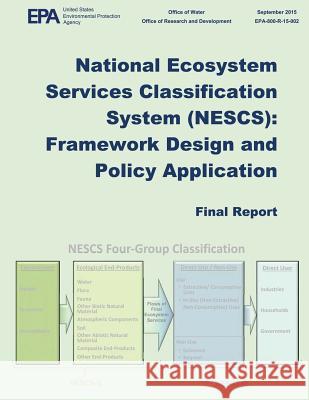National Ecosystem Services Classification Systems (NESCS): Framework Design and Policy Application » książka
National Ecosystem Services Classification Systems (NESCS): Framework Design and Policy Application
ISBN-13: 9781548593216 / Angielski / Miękka / 2017 / 190 str.
Understanding the ways in which ecosystems provide flows of "services" to humans is critical for decision making in many contexts; however, the linkages between natural and human systems are complex and multifaceted. A well-defined framework for classifying ecosystem services is essential for systematically identifying and tracing these linkages. The purpose of this report is to describe the National Ecosystem Services Classification System (NESCS), which is designed to address these needs. The main objective of NESCS is to provide a framework that will aid in analyzing the human welfare impacts of policy-induced changes to ecosystems. In particular, it is intended to support different types of policy impact analyses, such as cost-benefit analysis of environmental regulations. Measuring the welfare impacts of alternative environmental policy or natural resource management scenarios typically entails three main steps: identifying, quantifying, and (as feasible) valuing changes in ecosystems and their contributions to human well-being. NESCS is primarily designed to support the first step--identifying ecosystem service changes-and thus provides a foundation for the subsequent steps of quantification and valuation. It is not an accounting system, but it is designed to support comprehensive and systematic accounting of changes in ecosystem services. NESCS could also potentially be used to support analysis of other policies that could result in changes to ecosystems such as housing, transportation, and tax policies.
Zawartość książki może nie spełniać oczekiwań – reklamacje nie obejmują treści, która mogła nie być redakcyjnie ani merytorycznie opracowana.











